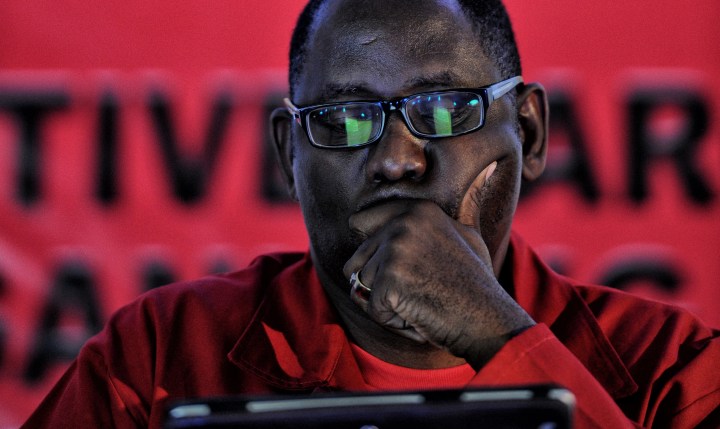NATIONAL SHUTDOWN
Major cities prepare for thousands to pound the streets in protest against minimum wage

The South African Federation of Trade Unions (Saftu) and a number of other trade unions – but not Cosatu – are set to embark on protest marches against the proposed national minimum wage of R20 per hour and changes to the labour law. Here’s what you need to know.
When is the national shutdown taking place?
D-Day is Wednesday 25 April. If you are not intending to join the protest action you would do well to avoid the main city centres where marches will be held.
Who will be taking part?
Thousands of South African workers from several sectors including public sector workers are expected to embark on the national protest organised under the banner of the South African Federation of Trade Unions (Saftu) and led by its general secretary Zwelinzima Vavi, former leader of Cosatu. Workers who are not members of Saftu are welcome to join the action but be aware that the principal of “no work, no pay” will apply.
Why march?
Marchers have essentially two main concerns:
- The national minimum wage proposal of R20 an hour which was due to come into effect on 1 May 2018 and which workers have described as a “poverty minimum wage” which would have the effect of entrenching an “apartheid wage structure”.
- They are also concerned about proposed labour law amendments which among others would make it extremely difficult for workers to embark on strike action.
Will marches be held in all areas?
Marches and pickets will take place in Johannesburg, Cape Town, Durban, Bloemfontein, Polokwane, East London, Port Elizabeth and Queenstown.
- In Johannesburg, marchers will assemble at Newtown Precinct Park and will march to the labour department, the provincial department of health and the premier’s office.
- In Cape Town, they will assemble at Keizersgracht before making their way to the City of Cape Town offices and then Parliament.
- In Port Elizabeth, the assembly point is Vusi Dlamini Square after which they will make their way to Vuyisile Mini Square where a memorandum will handed over.
- In Bloemfontein, marchers will assemble at Batho Hall before making their way to the department of labour.
- In Polokwane, the assembly point is SABC Park, after which marchers will head to the departments of labour and social development.
- In Durban, marchers will head to the Durban City Hall, the departments of labour and economic development, as well as the premier’s and mayors offices from Botha’s Place.
- In Queenstown, a picket will be held outside the department of labour.
What’s likely to be affected?
Expect congested traffic in all the cities where protest action will take place.
Numsa is calling on all workers in the motor and mining industries to join the strike, so expect disruptions in those industries.
Bus drivers are already on strike and are likely to join Wednesday’s action too.
But not all unions will be taking part?
That’s correct. Cosatu said it supports the National Minimum Wage and will not join in the planned strike action. Cosatu spokesman Sizwe Pamla said the minimum wage will be a huge achievement which will see wages rise for the 47% of workers (six million people) who earn less than R20 an hour currently.
R20 an hour does not seem like a lot. If the NMW is passed, what will workers earn?
The proposed R20 per hour minimum pay will mean that workers who work on a monthly basis, full-time, will earn in the region of R3,500 a month. Unions opposing the NMW in its current form say that to sustain a living workers should be earning about R12,500, arguing that R3,500 is a poverty minimum wage.
So why is there a delay in the implementation of the NMW?
Essentially the bill governing the NMW is not completed and is unlikely to be done by 1 May, Labour Minister Mildred Oliphant said recently. She said public hearings and submissions had raised key issues which needed to be considered before this bill was enacted. A new implementation date is yet to be announced. DM

















 Become an Insider
Become an Insider